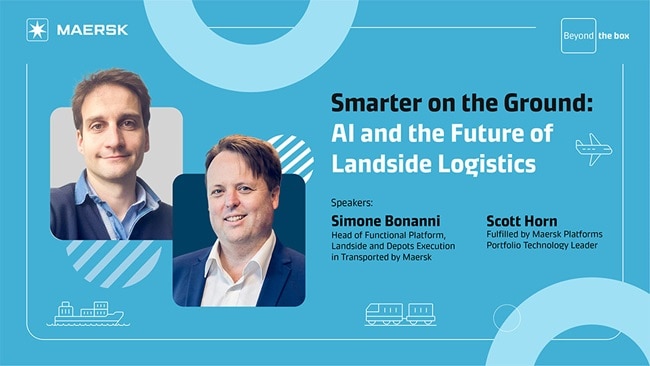Every month, approximately 1,000 ships travel through the Panama Canal, transporting more than 40 million tons of goods – a staggering 5 percent of the world’s maritime trade volumes. However, this vital link between the Atlantic and Pacific Ocean is facing an unprecedented challenge as water levels plummet to critical lows due to the most severe drought in the canal's 143-year history. Gatún Lake, the Panama Canal's primary water source, is at historically low levels, forcing cargo ships to find longer routes across the ocean.
From extreme weather events disrupting transportation routes, to shifts in agricultural patterns affecting raw material sourcing, climate change has exposed the vulnerability of supply chains like never before. A single climatic event can trigger a domino effect, crippling operations and causing ripple effects that reverberate across multiple industries and regions. Yet within these challenges, the most pressing issue facing the planet could potentially find a solution through the immense capabilities offered by the rapidly advancing field of Artificial Intelligence.
From reactive to proactive: environmental impacts of supply chain
As the world grapples with the escalating consequences of climate change, a shift towards proactive adaptation is imperative. Businesses must now anticipate the potential ramifications of climate change and implement measures to mitigate them pre-emptively. And that is where AI is proving to be a game-changer - paving the way for a more resilient and sustainable supply chain. AI's predictive prowess extends beyond mere forecasting. By simulating various climate change scenarios and their ripple effects across supply networks, AI can provide invaluable insights into potential bottlenecks, resource constraints, and transportation challenges. Armed with this foresight, organisations can proactively devise contingency plans, optimise inventory levels, and reconfigure logistics to mitigate disruptions to ensure continuity of operations. Below are five methods through which AI can assist in reducing the impacts of climate change on supply chains.
- Optimising supply chain networks: The CDP Supply Chain Report 2022, reveals that despite Scope 3 emissions being significantly larger than direct emissions, only a small fraction of businesses are setting targets to reduce their Scope 3 emissions, highlighting the lack of focus on upstream impacts. However, building a transport network that is powered by renewable electricity or alternative fuels is one of the simplest ways to help cut GHG emissions, AI can help identify the most efficient and reliable alternative routes by processing real-time data from sources like GPS, traffic cameras, weather forecasts, and historical traffic patterns. Moreover, AI can also consider specific constraints and preferences, such as vehicle type, cargo sensitivity, and delivery deadlines, to tailor the alternate routes to the specific needs of each shipment. This allows for more efficient use of resources, reduced transit times, and lower transportation costs, leading to a reduction in the overall scope 3 emissions.
- Demand forecasting: AI-powered demand forecasting can help companies anticipate changes in consumer behaviour due to climate-related events. For instance, if climate change models predict that a region will experience more frequent droughts, AI can forecast a decrease in crop yields for water-intensive crops like corn or wheat. Based on these predictions, businesses along the supply chain, such as food manufacturers or retailers, can adjust their inventory levels, production schedules, and distribution strategies to mitigate the impact of reduced crop yields on their operations.
- Resilience planning: AI can assist in developing resilience plans for supply chains by simulating various climate scenarios and their potential impacts on logistics, transportation, and inventory management. By modelling different scenarios, businesses can identify vulnerabilities and bottlenecks in their supply chains and implement measures to enhance resilience, such as diversifying sourcing locations, increasing buffer stock levels, or redesigning distribution networks.
- Sustainable sourcing: AI can help businesses evaluate suppliers based on environmental data, carbon footprints, and sustainability metrics. By using satellite imagery to monitor deforestation in palm oil plantations, analysing social media data to assess consumer preferences for sustainable products, and using blockchain technology to track the origin and authenticity of ethically sourced materials, AI can enable sustainable procurement and low GHG emissions sourcing. By tracking the origin of raw materials and components, AI can help businesses ensure compliance with sustainability standards and identify potential risks such as deforestation, water pollution or illegal logging.
- Real-time monitoring: Smart sensors and Internet-Of-Things (IoT) devices can continuously monitor temperature, humidity, air quality, and other environmental conditions during transportation and storage of goods. This real-time data can be seamlessly integrated with advanced AI algorithms, enabling businesses to identify potential risks posed by extreme weather events or temperature fluctuations. Moreover, AI-powered inventory tracking systems can provide real-time visibility into stock levels, locations, and movement. By proactively reallocating resources and adjusting inventory flows, organisations can mitigate the adverse impacts of climate-related events, ensuring uninterrupted operations and minimising losses.
AI environmental impact: the time to act is now
As key contributors to global GHG emissions and environmental degradation, supply chains bear a significant responsibility in driving positive change. Each stage of the supply chain has the potential to impact the environment, whether through GHG emissions, resource depletion, or waste generation and AI is emerging as a powerful ally in this fight. By integrating AI into supply chain strategies and operations it can empower businesses to anticipate challenges, adapt swiftly, and make informed choices that prioritise environmental preservation while driving economic growth. However, the true potential of AI lies not just in its technological prowess but in its ability to enhance human ingenuity and drive collective action towards a more sustainable future. This symbiotic integration of cutting-edge sensor technology, IoT connectivity, and AI-driven analytics represents a paradigm shift in supply chain management, fortifying resilience against the ever-growing challenges posed by a changing climate.
Sign up to The Logistics Pulse newsletter
You did it, welcome onboard!
We're sorry, but there was a problem sending your contact request.
Please review the form fields and ensure all required information is provided correctly. If the issue persists, please contact our support team for further assistance.
Sign up to The Logistics Pulse newsletter
Receive our insights directly in your mailbox by signing up through this form and enter a world of truly integrated logistics. Get inspired by our selection of articles that help you navigate supply chains, understand industry trends, and shape your logistics strategy. You can unsubscribe anytime.
I agree to receive logistics related news and marketing updates by email, phone, messaging services (e.g. WhatsApp) and other digital platforms, including but not limited to social media (e.g., LinkedIn) from A. P. Moller-Maersk and its affiliated companies (see latest company overview). I understand that I can opt out of such Maersk communications at any time by clicking the unsubscribe link. To see how we use your personal data, please read our Privacy Notification.
By completing this form, you confirm that you agree to the use of your personal data by Maersk as described in our Privacy Notification.













